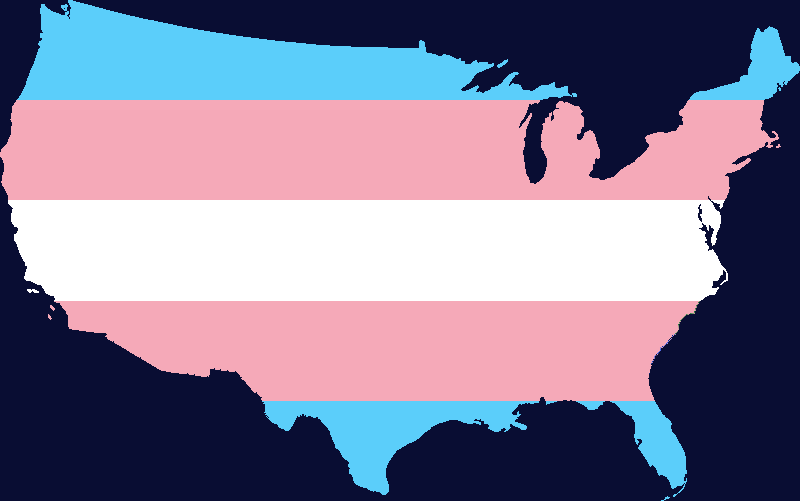Not Able to Serve?
Trump wants to ban new transgender recruits from serving in the military
Photo via Devin Kira Murphy under the Creative Commons license
Transgender Pride Flag map of the United States of America
According to the article “Should the Military Ban Transgender Soldiers?” in The New York Times Upfront Magazine, President Trump announced over the summer that he was banning transgender people from serving in the military.
I completely disagree with this. If someone is willing to commit to serving in the military and honoring their country, they should be able to do so.
According to a new poll by Reuters and Ipsos, about 58 percent of US adults agree that transgender people should be allowed to openly serve in the military, while only 27 percent disagree. Other countries including Australia, Canada, Israel, and the UK allow transgender people to serve openly. Allowing transgender solidiers to serve has “little or no impact on unit cohesion, operational effectiveness, or readiness.”
A 2016 review of the research by the RAND Cooperation found that allowing transgender people into the military would have very little to no effect on either combat readiness or military budget. But President Trump had stated via Twitter that the military couldn’t afford the “tremendous medical costs and disruption” of allowing transgender people to serve.
However, in an October 30 interview conducted via email with Mason Dunn, an openly transgender person from Massachusetts Transgender Political Coalition (Mass TPC), he stated that “regarding the costs of transgender people in the military – the cost, in the larger scheme of health care in the military, is negligible. Some estimates put trans-specific health care at .017 percent of military budget. And that assumes that every trans person in the military wants, or hasn’t already had, some medical aspects of transition.”
Dunn also said that “many opponents…do not see transgender soldiers as full and worthy people.” In reality, these soldiers are all equally brave and patriotic on the inside, and if they can pass the rigorous tests and demands placed on those who serve in the military, then why should they not be able to serve? As Dunn said, transgender people should be able to serve in the military if that is their calling.
If a person has the willpower and pureness of heart, they should be allowed to protect the country they love. Whether they are transgender or not.


